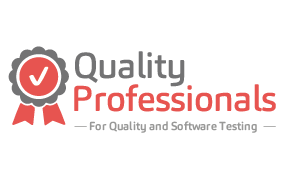Over the past recent years, software testing approaches became more complex to keep up with the constant advancements in software development practices and with the nature of digital services in general. As is the case in all industries, AI (Artificial Intelligence) and ML (Machine Learning) are shaping up new ways to speed up the production process and assure more accurate results. So is the case with software testing. AI solutions can not only scale up the level of productivity in all aspects but also solve issues that seemed inherent and unavoidable. In this article, we will discuss 5 ways in which Leveraging AI can solve software quality challenges, and how we at Q-Pros look to adapt such practices to further enhance our services in the world of QA. #1 Data Management Challenges Data gathering and documentation are at the core of any QA process. How well we manage our data decides the level of quality we seek to achieve. One problem testing engineers have struggled with over the years was data management. The amount of data being generated from the software development phase can be enormous. This amount of data can be so huge, that it can be impossible for human brains to fathom. This data includes: Values and parameters Environment data Build Data Data production and data coverage Giving this type of data a proper and accurate analysis can only be done by leveraging AI utilities. Relying on smart AI methods can secure better results in all software development phases, specially in the testing stages. It is likely that humans might fall to errors and get overworked while trying to comprehend enormous amounts of data. One crucial factor in assuring top quality is to collect data from end-users, and by doing so, it helps the dev team decide on what should be tested based on data gatherings and test configuration and combination. Test configuration can amount to millions of potential scenarios, and data-driven tests are essential to the testing process only running this data through smart analysis allows the testing teams to narrow down the number to prioritize the most valuable tests. #2 Challenges Regarding Time Organizations are constantly looking for ways to drive the Dev-Ops process even faster, and relying on smarter methods can further drive the cycle even faster and ensure better quality at the same time. While Agile methods can result in more organized and accurate outcomes, they can also take a heavy toll on the dev team. We must produce test configurations and test, and then the dev team must make the changes and wait for another testing cycle or sprint to ensure that no further changes are needed regarding the scenario at hand. Speeding this process and ensuring the same if not better quality of results can only be done via smarter AI solutions. By analyzing quality trends and assessing code-changing risks, developers can then plan for better more efficient sprints. #3 Keeping up with mobile and app advancements With the current state of exponential growth of mobile devices and mobile application services, it is getting more and more complicated for developers and testers to keep up. Most Mobile Operating Systems (OS) come with an SDK (Source Development tools) which are used to create native programming languages that are suited for each OS and each device. This accounts for many combinations which are still unstable as things are changing fast. Leveraging AI in the testing process can simplify things and assure the inclusion of all modern updates. #4 Integration Testing Within the Agile structure, QA has become a bottleneck or a speedbump. This is because while it is an essential step, there is little that can be done when it comes to constant updates and changes, we need to constantly test with each change! And while software development is shifting more to the front-end, testing on the front-end could be fragile. That is why we need to make the most of the AI to run more integration tests. #5 Continuous Monitoring Existing new possibilities lay ahead in the world of software development, and it is only fair to extend the same level of advancements to the world of testing services. In future years, we will begin to see automated functions running in the background always analyzing every level of code. The Use of AI can help establish the foundation for such continuous progress as it is difficult for human labor to keep track of every degree of development. Cognitive Automation As mentioned, one challenge facing software testing is our need for continuous testing. Doing so allows us to confirm expected behaviors and check for any changes or anomalies. This task is better done through AI, and we could allow automated tools to adjust and customize themselves to perform this process. QA engineers must harness the benefit of AI and make use of every viable way to automate the testing process, this allows for more time for creative thinking and planning for more tests and areas to serve the overall project. The need for human intervention in software testing will always remain, the key is to adapt and collaborate with automated means, and not to eliminate one on account of the other. For as long as the software is designed to be eventually used by humans, the need for human testers will only grow more as applications are getting bigger in scales of usability. AI Testing and Shifting Left In recent years, and with the emergence of such work models like agile and DevOps, testers started shifting left, which means testing is now becoming more present in the initial stages of development. The role of AI in shifting left is that it asserts cooperation values and by doing so allows the development teams to co-exist and align better with the testing team. One way to deliver better quality to the product is to involve the testing team in more stages, such as early planning and sprint execution. Q-Pros Q-Pros is a leading IT company that provides testing services at all levels, we at Q-Pros rely on manual and automated testing methods and tools to assure the best quality for our clients. We plan and strategies testing plans custom-made and crafted for our unique clients. The role of AI is eminent, we strive to lead the way in innovation and creative testing. Read more on how we plan to leverage AI in software testing. In Conclusion Software testing involves a set of unavoidable challenges. It comes down to either working hard or working smart; while we intend to do both, it is of extreme importance to remain on top of modern advancements. Establishing good foundations with AI and ML tools is a huge asset for software quality. Automation allows us to analyze data in real time. Through AI we gain more information from data builds, code changes, and test history, narrowing down thousands of possible configurations. By empowering the testing team through Automated tools, we receive better and quicker results. https://q-pros.com/online-test-request/ ...
Read MoreAuthor: q-pros
Software testing and Quality control aim to provide users with secure applications, safe from any potential hacking scenario or accidental leaks. And to accomplish this, we rely on two security testing methods: Vulnerability scanning (VS) and Penetration testing (PT). While both have a similar role in creating a stronger, more secure system by preventing any breaches/crashes that may occur in the future and threaten software security, there are specific differences that we need to investigate between the two. The Q-Pros Software QA strategy sets out to consolidate the foundation of any system to produce a better swift and secure digital experience through various methods. This article will examine the major differences between Vulnerability scanning and Penetration testing. First, let us start by defining each...
Read MoreIn the Quality Assurance field, there is always a need to find innovative ways to perform tests and include more aspects to be tested. At Q-Pros, we adopt a software quality assurance framework that relies on innovation rather than labor to create better results and ensure time/cost efficiency. In this article, we learn about parallel testing; What are the main components, advantages, and challenges of Parallel Testing. What is Parallel Testing? Parallel testing is the process of simultaneously testing multiple applications or multiple application components to reduce the execution time of the test factor at hand. Parallel testing involves executing multiple test sequences at once rather than testing for one element separately. To perform parallel testing, we rely on automated testing tools which come in handy when dealing with large-scale testing processes. How to Parallel Test? Parallel testing works best using Cloud-Based Solutions. Certain automated tools are used to run an application feature on multiple devices across different platforms, hence the name parallel. Parallel Testing works by applying and generating possible Browser/Device/Operating-System combinations. By doing so, it asserts inclusivity in tests creating foolproof results. There are many Cloud-Based testing tools to use to activate your parallel tests, tools such as Rapise, Nmap, Nessus, AppPerfect, and QAwerk are utilized in various aspects based on the test at hand. Cloud-based testing in general is time-efficient. Any testing expert should rely on automated tools that function on a cloud to allow for correlation. By testing on a cloud, the testing experts reduce the number of manual tests and get more access to various hardware options. Tests you can perform in a cloud environment include: Functional testing: Functional testing ensures that a software application performs its required features and that it complies with its business requirements. Non-functional testing: Non-functional aspects include performance, usability, and reliability. Non-functional tests could also measure security based on business demands. Ability testing: The goal of any testing procedure is to ensure that an application is compliant and operates within the scope of the desired quality level. Ability testing stretches out to include software features such as defect recovery. Benefits of Parallel Testing: Time-efficiency: Parallel testing speeds up the execution time by executing multiple tests simultaneously. Test coverage: Parallel testing allows you to test on several mobile device desktop/browser combinations at once, covering more test case scenarios and adding confidence to the testing process. Fixing in sprints: Parallel testing allows you to fix bugs and defects during the sprint rather than at the end. Better Dev-Ops: Having to slow down the Dev-Ops cycle by constantly testing and experimenting and producing test scenarios, Parallel testing accelerated the testing process and empowered the Dev-Ops structure. Challenges of Parallel Testing: Unlike other testing approaches, parallel testing requires a larger scale of planning. Due to its nature, this form of testing demands a level of IT knowledge and IT investment. Taking the level of scalability it carries into consideration, DIY parallel testing is almost impossible to accomplish without the help of tech experts. Our Experts at Q-Pros invest a great deal of time to ensure software compatibility, and we always adopt innovative methods to accelerate the testing process and guarantee absolute results. You can request this level of service and much more via our list of QA offers. ...
Read MoreQuality assurance involves a barrage of roles and job opportunities, and one of the most common career choices in the field of QA must be that of a QA engineer. In this article, we will talk about quality engineers, definition, objective, and daily duties. According to forbes list of happiest jobs, Quality assurance related jobs top the charts in term of happiness and growth, so we at Q-Pros would like to introduce some of the roles and career paths one can take to be involved in QA and software testing. QA Engineers: Definition A QA Engineer is a professional expert who oversees tracking and fixing bugs before releasing the product. QA engineers collaborate with developers to produce ways to fix problems. Quality Engineers are strategists, they align with product managers to produce ways to better enhance the production phase and assure a defect-free system that is in line with business requirements. Quality control engineers work ahead of time to make sure that efficient requirements are set and are clear to every stakeholder, and they would assure certain complexities are resolved before wasting any effort. Once everything is set in the initial phases and planning, QA engineers would cooperate with team members and leaders, guaranteeing everyone is equipped with proper resources and training. Daily Duties of QA Engineers QA Engineers have the most exciting daily duties. They work on multiple levels and partner with many stakeholders and developers. Here is a list of the daily expected duties of QA Engineers: Designing Tests - To begin with, QA Engineers would design tests, underlining potential issues, and work in accordance with requirements to produce scenarios to test the product. QA engineers could also highlight the causes of defects. Test Execution - The next step would be to conduct the designed tests and document the results. One important aspect here is to deliver the results to the stakeholders. Analyzing Tests - Moving forward, a QA engineer would oversee analyzing test results, making sure to document everything so unexpected outcomes would not occur in the future. This part seals the deal to guarantee that problems are resolved completely. Improve testing - One important task done by QA Engineers is enhancing tests and producing new innovative ways to modify the QA process. QA Engineer Qualifications The minimum academic qualification to become a QA Engineer is a bachelor’s degree in software development, computer science or any IT/QA-related field. QA engineers can start right away with no required extensive prior experience, although it is preferred to have some experience in QA or IT in general. Here are some of the most common expected skills for QA Engineers: Creativity: QA engineers are expected to be creative to produce innovative ways to enhance products and adjust to modern requirements and up the standards for QA. Efficiency: What makes a great QA engineer is their ability to efficiently implement both manual and automated processes. They would write the best practices and avoid repeating errors. They also understand where different issues can happen in the SDLC (Software Development Life Cycle) and act only the correct ones. Attention to details: Like most QA roles, A QA engineer falls no different when it comes to being accurate and detail oriented. Being a QA Engineer can get you a chance to climb up the company hierarchy. Testing Engineers are heavily involved with so many aspects and gain experience in many fields. To consider becoming a QA Engineer, you will have to first strengthen your knowledge in QA practices and gain extensive knowledge in programming languages. Though there is no coding taking place, one must be able to understand how systems work to be able to design and execute automated tests, scan codes for errors, and communicate with developers to ensure a swift flow of information. Q-Pros is a leading Software testing provider with more than a decade of experience in the field. We take pride in our arsenal of experienced professionals, from QA engineers, test analysts and much more. Request a testing service from our online request form and guarantee top quality for your website, mobile apps, and software. ...
Read MoreKatalon Studio is one of the most known tools for automated testing. Testing engineers are becoming keener on using it for its multiple features and low-code approach. Katalon is used for testing Web interfaces, Windows desktop, mobile apps (on both IOS and Android), and APIs. It also provides recording options and analysis reports. Our automation experts at Q-Pros regard Katalon as a must-have to implement automated tests and integrate them within other testing channels and teams. In this article, we will give an overview of Katalon, its features, and integrated software. What is Katalon Studio? Katalon Studio is an automation testing software designed to build and reprocess automated tests for UI without code dependency. It was initially released in 2015 with a Selenium framework. Katalon Studio is an all-in-one platform for web, mobile, desktop, and API automated testing. Katalon is a low-code platform with integrated options to speed up SDLS processes. Is Katalon Studio open source? Katalon is not an open-source framework, but it is free and can be used to provide automated solutions for front-end web and mobile applications Katalon Studio Features Here is a list of some important Katalon Studio features: Web Testing – Katalon grants its users complete web testing solutions with inbuilt continuous delivery and continuous integration that is fully aligned with DevOps integrations. It offers an object spy utility to capture objects and examine their properties in detail. Native Katalon plugins integrate with bug tracking/project management tools like JIRA, Git, and Jenkins. API Testing – Unlike the market leader Selenium, Katalon allows you to test API without any additional integrations. With Katalon, testers can automate scripts, perform code inspection, and code snipping and debugging. Katalon guarantees a bigger coverage of test data by supporting all kinds of requests and cloud-sourced data like XLS, XML, and REST, SOPA 1.1/1.2 requests. Mobile Testing – Katalon offers a mobile testing experience that involves mobile Web, IOS, and Android apps, as well as hybrid apps. Tests can be performed locally or remotely with actual devices or simulators. The module also allows testing engineers to detect and store data providing a well-structured process that is easy to track back to on long-term projects. Desktop Testing – Katalon supports apps written on the following platforms: Universal Windows Platform (UWP), Windows Forms (WinForms), Windows Presentation Foundation (WPF), and Classic Windows (Win32). Katalon's features for desktops are Spy Windows Objects and Record Windows Action. Katalon TestOps – TestOps is a web-based application that integrates both tests and DevOps frameworks. It offers test planning features, test execution, and project management. It also integrates with CI/CD tools and other testing platforms. TestOps gives a full 360 scan of all testing activities, creating test reports and monitoring for testing quality. Katalon TestOps takes screenshots, videos, and test results and displays them as KPIs on its dashboard. Katalium – Kataluim feature is an open-source framework that offers a blueprint for test automation projects based on TestNG and Selenium. It streamlines building test cases and improves the user experience on Selenium Grid. Katalon Studio Integrations Katalon offers native integrations that makes it easier to work with common QA related tools. Here is a list of Katalon integrations: CI/CD: Azure DevOps, Jenkins, GitHub, Gitlab, Circle CI, CodeMagic, etc. ALM: Azure DevOps, Jira, Xray, qTest, TestRail, etc. Cross Browser Testing: BrowserStack, SauceLabs, Selenium Grid, etc. Testing platforms: Selenium, Selenium IDE, Postman, etc. Source code management: Atlassian Bitbucket, AWSCodeCommit, GitHub, etc. Learn more about Katalon integration Katalon vs Selenium Katalon Selenium Used for Used on Mobile, Desktop, Web Applications Web Applications Difficulty Easy to use with a dual interface More Difficult Browser options Chrome, Safari, Firefox, Microsoft Edge, Opera Chrome, Safari, Firefox Keywords Includes Built in keywords, and offers costume made keywords No built-in keyword options Reporting Provides repots for recordings No reporting Speed and processing Fast Faster than Katalon In Conclusion Katalon is good for both small-scale projects and big projects. It is a perfect choice for both individuals and companies as it offers a constantly evolving ecosystem of useful tools. It also comes with a wide list of native integrations to facilitate implementing all kinds of needed tests, including API testing. Q-Pros relies on Katalon, and we make sure our testing engineers are Katalon experts. This guides our QA specialties to guarantee excellent and accurate results for our clients. https://q-pros.com/online-test-request/ ...
Read More





